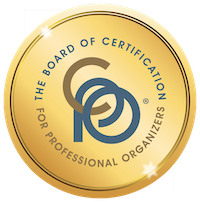A pro-clutter movement?
According to an article by Penelope Green in today’s New York Times, there’s an anti-anticlutter movement afoot. That movement, according to the article, urges people to say yes to mess and embrace their disorder. A new book due out in a couple of weeks called, A Perfect Mess: The Hidden Benefits to Disorder—How Crammed Closets, Cluttered Offices, and On-the-Fly Planning Make the World a Better Place, by David H. Freedman and Eric Abrahamson, is intriguing. The book examines the benefits to messiness and the hidden cost of order.
I get that. I know that there are people who will never have a neat-as-a-pin desk or home at all times, even if they think they want it. Heck, I’m one of those people. We’re better off relaxing our standards a bit so as not to set ourselves up for failure. We should remind ourselves that it’s perfectly okay to be messy. But that doesn’t mean we can’t seek order in our lives. It doesn’t mean we have to live surrounded by physical clutter if leads to mental clutter and makes us feel out of control.
I wonder whether the authors have ever seen a debilitatingly messy home, one in which rooms had little paths winding through them or were not accessible at all. Those homes are heartbreaking. I can’t be convinced there’s any benefit to living like that. So while a little mess can be okay, and an obsession with order can, for some people be an exercise in frustration, there’s certainly room for healthy improvement in most messy people’s lives.
I’m looking forward to reading this book and perhaps using what I learn from it to help my clients not strive for rooms right out of Martha Stewart Living or Real Simple. After I’ve read it, I’ll blog about it here again.
Tagged with: anti anticlutter, books, disorder
Comments
Links
- Shannon Wilkinson, life coach
- Institute for Challenging Disorganization
- Peace of Mind Budgeting
- Ravelry
- National Association of Productivity and Organizing Professionals
- Getting to Good Enough podcast
- Are you interested in becoming a professional organizer?
- NAPO St. Louis
- Organize Your Family History







